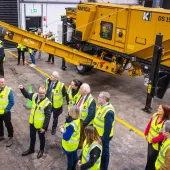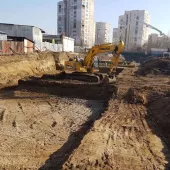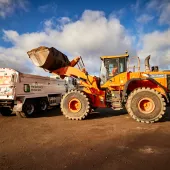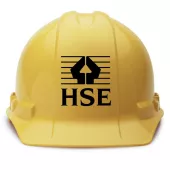No waste at LafargeHolcim

Geocycle treated 10 million tonnes of waste materials and open new recycling facilities in 2017
GEOCYCLE, LafargeHolcim’s global waste-management subsidiary, treated 10 million tonnes of waste in 2017 – a 13% increase compared with 2016. Using kilns involved in cement production, LafargeHolcim co-processed all types of waste including: solid shredded waste (from industrial and municipal sectors); used tyres, waste oils; contaminated soils; industrial and sewage sludge; as well as demolition waste.
Jan Jenisch, chief executive officer of LafargeHolcim, said: ‘Sustainable building and living are key to the future and we are committed to playing an important role as the demand for sustainable construction solutions and environmentally friendly buildings and infrastructure continues to grow.
‘We offer solutions that facilitate the simultaneous recycling and recovery of waste. We have ambitious plans to continue investing in all parts of the world in order to bring the most advanced technology and solutions to our partners and play a role in solving the global waste problem.’
In Europe and North America, the main growth area for Geocycle has been industrial waste, while the strongest growth rates for municipal solid waste were seen in Asia and Latin America, where waste infrastructures are still developing and municipalities continue to seek sustainable solutions.
In 2017 LafargeHolcim built three new major waste-treatment facilities in: Kujawy (Poland); El Sokhna (Egypt) and Oum Azza (Morocco). The plants are helping to divert solid waste from landfill and uncontrolled dumping, reducing pollution of land and oceans.
According to Geocycle, co-processing leaves no residues as the ashes are incorporated into clinker, while the basis of cement and waste products are used as a direct substitute for fossil fuels and other raw materials.
Co-processing is said to reduce carbon emissions and energy costs; the higher temperature and longer residence time means cleaner combustion and avoidance of landfill and uncontrolled dumping of waste and pollution. Overall, co-processing can play a critical role in solving the problem of waste disposal while making an important contribution towards a circular economy.







